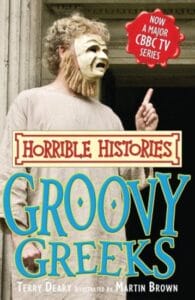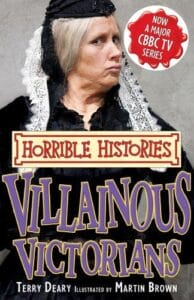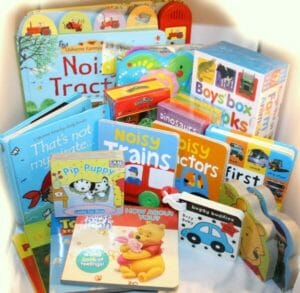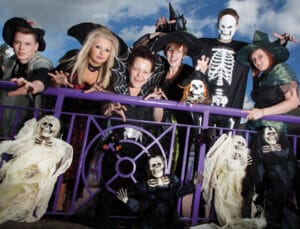Horrible Histories: Taking a creative approach to History
 Put yourself in the shoes of a primary school child for a moment. Ready?
Put yourself in the shoes of a primary school child for a moment. Ready?
Which of the following introductions to the history of the second world war would grab your attention?
Ok kids, this term we’ll be studying the second world war. We’ll be learning about the leadership of Winston Churchill, the resistance and the blitz.
OR
OK kids, this term we are going to study the Second World War. We’ll learn about who made meals out of maggots, which smelly soldiers were sniffed out by their enemies and why white knickers could kill you.’’
There is a strong possibility that children would opt for the second introduction because they tend to like a messy ‘pooey’ approach to things!!
History is one of those subjects, if introduced creatively to a child, would grab their attention for life. On the other hand if the introduction is dull, they’d be put off the subject for life. The Horrible Histories series of books take that fun and creative approach to history. The slogan for the series is , “history with all the nasty bits left in’’.
The key feature of the Horrible Histories books is that they highlight little-known funny and fascinating facts about different periods in history. The heroes in each book are the little people and the villains are the establishment. Titles such as Villainous Victorians, Vicious Vikings and Awful Egyptians bear testimony to that.
The author of the series, Terry Deary, is a self-declared anti-establishment figure. He did not enjoy school very much because he felt that teachers taught things he didn’t ever use later on in life. He believes that schools should help you to find what you are good at and help you to develop it. His skill is undoubtedly writing. Ironically Horrible Histories books are now used in some schools as part of their history curriculum. You could see why!!
With over 60 Horrible Histories books available, each title is laden with mind-boggling, sometimes gory, facts guaranteed to capture and sustain a child’s attention on a given period in history.
Studying Ancient Greece could be a sleep-inducing exercise for a child but Groovy Greeks takes a hilarious look at the topic.  It gives answers to questions such as, ”who had the world’s first flushing toilets? Why did doctors taste their patients’ air wax? And why some groovy Greek girls ran about naked pretending to be bears!!” Crucial junctures in Greek history are creatively interspersed within these truly fascinating facts.
It gives answers to questions such as, ”who had the world’s first flushing toilets? Why did doctors taste their patients’ air wax? And why some groovy Greek girls ran about naked pretending to be bears!!” Crucial junctures in Greek history are creatively interspersed within these truly fascinating facts.
Studying Victorian History could be another big turn off for children. Villainous Victorians takes a different approach. In keeping with the other titles in the series, it explores the little-known facts of that period in history. This title explores topics such as which poet claimed he ate an ape and why burglars were scared of bogies!
 Although some horrible facts are quite humorous, there is a strong message behind the humour. In keeping with his anti-establishment approach, the author demonstrates that there were people, living during the period of Victoria’s reign, who made significant contributions to life as we know it today. The names of those people are forgotten yet Queen Victoria’s name is always remembered.
Although some horrible facts are quite humorous, there is a strong message behind the humour. In keeping with his anti-establishment approach, the author demonstrates that there were people, living during the period of Victoria’s reign, who made significant contributions to life as we know it today. The names of those people are forgotten yet Queen Victoria’s name is always remembered.
The Romans is also taught to children today but do they explore what Roman soldiers wore under their kilts? or how ancient Britain got their hair nice and spikey? or even why rich Romans needed a vomitorium?
Rotten Romans does just that!! Of course those questions do not appear in isolation but they are some of the fascinating facts which are left out when the topic is taught in schools.  For example, during the roman invasion, the Celtic men were very proud of their hair. They bleached it by washing it in lime. The lime in turn made their hair spikey. They were so keen on their hairstyles that they didn’t wear helmets during battles because the helmet would have ruined their hairstyles!! Children can also begin to learn new terms without realising they’re doing so. Take, for example, the concept of a republic. This could be difficult to explain in a manner which a young child would understand. The concept is explained effortlessly as part of the Roman timeline ‘’ 508: The Romans are fed up with their cruel king, Targquin. They throw him out and rule themselves, (that’s called a republic).”
For example, during the roman invasion, the Celtic men were very proud of their hair. They bleached it by washing it in lime. The lime in turn made their hair spikey. They were so keen on their hairstyles that they didn’t wear helmets during battles because the helmet would have ruined their hairstyles!! Children can also begin to learn new terms without realising they’re doing so. Take, for example, the concept of a republic. This could be difficult to explain in a manner which a young child would understand. The concept is explained effortlessly as part of the Roman timeline ‘’ 508: The Romans are fed up with their cruel king, Targquin. They throw him out and rule themselves, (that’s called a republic).”
Although the author’s prime aim wasn’t to create history books per se, the Horrible Histories series is an extremely creative way to whet a child’s appetite for history
Join our mailing list
Sign up to our Emailing List & Get the Latest Information and Offers on Resources
Thank you for joining !
Something went wrong.





